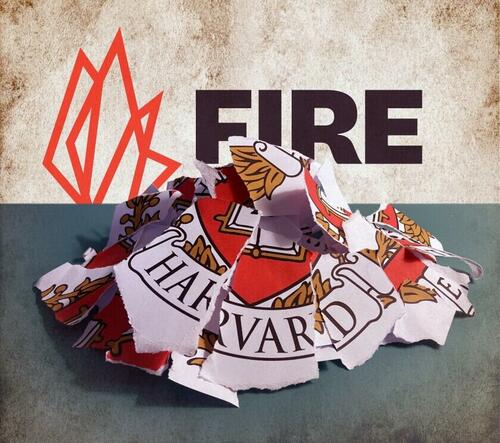Harvard And Columbia Rank As Worst Colleges For Free Speech In Annual Survey
For the second year in a row, Harvard University is ranked dead last among universities and colleges on the annual survey of free speech on campuses by the Foundation for Individual Rights and Expression (FIRE).
Harvard shares a score of 0.00 with Columbia University. They are followed by New York University, University of Pennsylvania and Barnard College.
In my book “The Indispensable Right: Free Speech in an Age of Rage,” I discuss free speech on campuses and note that public universities could prove the last line of defense for this right. It is not that faculty members are necessarily any more protective of free speech or intellectual diversity at these schools. However, they are directly subject to the First Amendment as state schools and thus can be taken to court more readily for denials of the right.
Conversely, at schools like Harvard, Columbia, Penn, and NYU, the faculty appears unconcerned about their dismal records on free speech. There is still a growing anti-free speech movement on our campuses. It is notable that these schools also have largely purged conservative and Republican faculty from their ranks. A past survey found that over 75 percent of faculty identify as liberal or very liberal. Another survey found that many departments do not have a single Republican.
I was disappointed that my alma mater University of Chicago has fallen from number 1 to 44, though it still gets a shout out from FIRE as being a consistently strong free speech environment. The concerning fall has occurred under with the presidency of Armand Paul Alivisatos. He replaced one of the greatest advocates of free speech in academia, the late Robert Zimmer.
My proudest moment came when Zimmer sent a famous letter to the class of 2020. The letter warned students that they will not be shielded from views that upset them or given “safe spaces” on campus.
In the letter, the university declared that “our commitment to academic freedom means that we do not support so-called ‘trigger warnings,’ we do not cancel invited speakers because their topics might prove controversial, and we do not condone the creation of intellectual ‘safe spaces’ where individuals can retreat from ideas and perspectives at odds with their own.”
It was a moment of clarity that is missing in today’s environment of speech codes, microaggressions, and cancel campaigns.
When Zimmer stepped down in 2021, there was a virtual panic in the free speech community. He was our champion and placed one of the premier academic institutions in the world on the side of free speech.
Notably, Barnard College (unlike the other schools at the bottom) has joined other schools in adopting the Chicago Principles. It released a statement committing itself to a new course. We will have to wait to see if faculty will honor such a commitment.
George Washington University, where I teach, is 161st out of 251 schools with a below average ranking.
What was surprising this year were the schools receiving a “warning” about anti-free speech policies. They include Pepperdine University, Hillsdale College, and Brigham Young University. FIRE found that all “have policies that clearly and consistently state” that they prioritize “other values over a commitment to freedom of speech.” The President of Hillsdale responded in this column.
If there will be substantial improvements in the anti-free speech environment in higher education in private colleges, they will only come from donors refusing to support these schools until they change their policies and culture. Administrators and faculty feel little pressure to reverse these trends. However, they will respond if their intolerance begins to threaten their own budgets and departments.
Higher education has already plunged in trust among citizens under the current administrators and faculty at our colleges and universities. They are destroying the very institutions that sustain them.
In the meantime, public universities can be a strong line of defense for free speech, offering students not just free speech environments but the direct protection of the First Amendment. What is missing is greater diversity of viewpoints on faculties. I have written about how taxpayers and legislators can exercise their own power to demand more diversified and tolerant environments at these schools.
While some professors have argued that free speech and intellectual diversity are not essential to higher education, most of the public disagrees and has a right to expect a diverse and tolerant environment at state-supported schools.
In my book and past congressional testimony, I have also encouraged Congress to adopt ten basic prerequisites for federal funding for colleges and universities on free speech. If these schools want to continue to deny free speech to students and faculty, they should do so with their own funds and contributions from donors who share their anti-free speech agendas. Taxpayers should not be supporting schools which deny a right considered “indispensable” to our constitution and culture.
You can see the full rankings here.
* * *
Jonathan Turley is the Shapiro Professor of Public Interest Law at George Washington University and the author of “The Indispensable Right: Free Speech in an Age of Rage.”
Tyler Durden
Fri, 09/06/2024 – 12:45
via ZeroHedge News https://ift.tt/V48fWyT Tyler Durden
